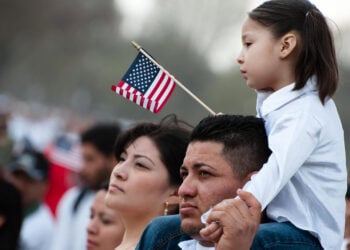What happens to immigration during a global pandemic, when international travel comes to a screeching halt and the economy worldwide is suddenly turned on its head? In just a few months, the effects have been far-reaching.
INTERNATIONAL TRAVEL RESTRICTIONS
Entry into the United States has been suspended of all foreign nationals who have been in China, Iran, Europe and Brazil within the last 14 days. The ban exempts U.S. citizens (USCs), lawful permanent residents (LPRs), and their immediate family members, but requires them to self-quarantine for 14 days. The Northern and Southern land borders have been sealed to all non-essential travel. The Department of State (DOS) issued a worldwide Level 4: Do Not Travel advisory, instructing Americans to avoid all international travel due to the global impact of COVID-19.
For the rest of 2020, the president has suspended the entry of immigrants who ostensibly threaten to steal American jobs during this period of record-breaking unemployment. The proclamation has several exceptions for LPRs, spouses and children of USCs, members of the Armed Forces and their spouses and children, medical and healthcare professionals, EB-5 immigrant investors, and others. On June 22, the president amended the proclamation to carve out an exemption specifically for derivative children at risk of “aging out” and losing their current ability to join their parents if they turn 21 during the ban.
The president’s latest proclamation suspends the issuance of many non-immigrant visas to purportedly protect U.S. jobs. This order applies to all H-1B, H-2B, J-1, and L-1 visa applicants and their dependents who were outside the United States as of June 24. Those categories include executives, managers, and specialized intracompany transferees of multinational corporations, high-skilled workers, cultural exchange visitors, and non-agricultural seasonal guest workers. The ban will block up to 525,000 foreign workers and their families through the end of the year, and may be continued “as necessary.” In theory, it provides for exemptions for workers “essential to the U.S. food supply chain” and others whose entry is deemed to be in the “national interest,” although no guidance has been provided to agencies on how to grant an exemption.
NO ACCESS TO ASYLUM
Along the Southern border, Migrant Protection Protocols hearings have been postponed, forcing nearly 60,000 asylum-seekers to remain in Mexico even longer, in inhumane and dangerous living conditions. For those that cannot wait and decide to cross into the country without inspection, Border Patrol agents are processing them in the field instead of at a Border Patrol station. After running their fingerprints to check for serious crimes, if none are found, agents return migrants back to Mexico in an average of 96 minutes, without a medical exam or a credible fear interview.
IMMIGRATION OFFICE CLOSURES
United States Citizenship and Immigration Services (USCIS) field offices and application support centers closed to the public and only recently began to slowly reopen in limited capacity. DOS suspended all routine immigrant and non-immigrant visa services at every U.S. Embassy and Consulate abroad and cancelled all appointments. As a result, no visa interviews have been conducted since March 20 except in emergencies. All non-detained deportation hearings were suspended in the immigration courts. Immigration and Customs Enforcement (ICE) modified its enforcement priorities, focusing only on detaining public-safety risks and individuals subject to mandatory detention based on criminal grounds.
THE CONSEQUENCES
Revenue from USCIS application fees has dropped due to decreased filings. Approximately 13,400 USCIS employees will be furloughed on August 3. USCIS is requesting to dramatically raise fees to compensate for the shortfall. Naturalization interviews and oath ceremonies have been postponed, resulting in hundreds of thousands of immigrants unable to vote in the upcoming election. Premium processing of all employment-based immigrant petitions has been indefinitely suspended.
Processing for H-1B cap cases has been delayed. The entry of H-2A seasonal agricultural workers was pushed back. Saturated consulates that already had year-long waits for visa interviews remain closed with no news of reopening anytime soon. Many of the world’s most talented workers are unable to finalize or renew their visas abroad, trapping them overseas and stranding them from their families and careers. Refugee and asylee admissions have halted completely. More than 2,700 immigrants in ICE custody and about 200 ICE employees have tested positive for COVID-19. Two detainees have died from the virus while in custody, and another shortly after being released. The immigration court’s unprecedented backlog of over a million cases continues to snowball.










